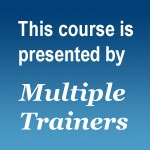

NVC Resources on Feelings
-
Raj Gil offers tools and dialogue to help you respond to anger with awareness & care in the moment.
-
Explore what blocks us from speaking truth and how honesty builds trust and growth.
-
Connection requests focus on the quality of connection between people instead of on any particular strategy or solution. While the core motivation for a connection request may be connection with the other person, varied internal states and needs may help guide us toward different types of connection requests. Self-connection and understanding of our motivation in making a connection request can therefore greatly support our capacity for discovering and articulating what specifically we want from the other person that we believe may contribute to connection.
-
Join CNVC Certified Trainers Jeff Brown, Jean Morrison, Karl Steyaert, Kathleen Macferran, Mary Mackenzie and Sylvia Haskvitz in a lively Q&A session focusing on naturalizing NVC into our daily interactions.
-
If role play, hearing conversations modeled and dialogue practice is how you learn, this is the telecourse recording for you! Learn the art of entering, staying in and bowing out of the conversational dance using real-life situations.
-
John Kinyon and Matthew Rich examine the ways in which people’s worldviews can be different and why this often creates conflict.
-
Transforming anger is a key practice for returning to conscious presence and connection with self and others when triggered into a reaction. Join John Kinyon to learn this essential life skill through the Enemy Image Process and Learning/Growth Spiral.
-
Reveal, own and share the inner chatter that plays over and over in your head, in between the words you speak aloud. Arnina Kashtan will help you discover, embrace and open up the places inside that you’ve hidden and judged.
-
Trainer Tip: Mary explains why success isn't dependent upon another person's pain, by reaching for consensus instead of self-sacrifice.
-
Trainer Tip: Make a boring or "dead" conversation more interesting, meaningful and connecting. You can do this by connecting to the other person’s feelings, passions or desires. Read on for examples.

Quick Links
Subscription Preferences
Stay In Touch!
Looking for ways to keep up with NVC Academy news, get special offers, free resources, or words of inspiration? Here are five ways to stay engaged:










